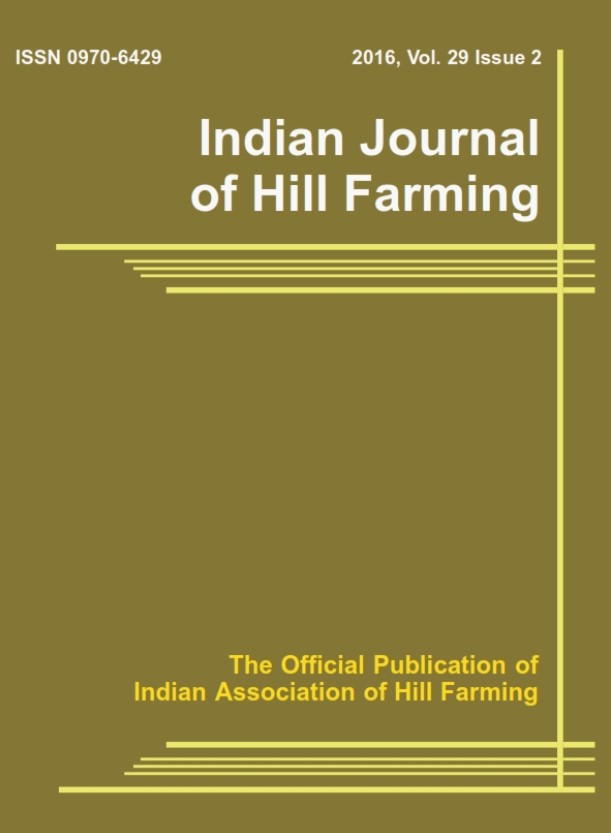Bio-Priming of African Marigold (Tagetes erecta) cv. Pusa Narangi Gainda Seeds
DOI:
https://doi.org/10.56678/iahf-2025.38.01.2Keywords:
Biopriming, Trichoderma harzianum, microbial consortia, Seed germination, African marigold.Abstract
This investigation was done to determine the effect of biopriming on African marigold (Tagetes erecta) cv. Pusa Narangi Gainda. Biopriming is a process of invigoration seeds with a solution containing beneficial micro-organisms. Randomized block design with seven treatments was used and replicated thrice, in which biopriming agents, namely phosphate-solubilizing bacteria (PSB), Trichoderma harzianum, microbial consortia, Psuedomonas fluorescens, jeevamrutha, and indigenous effective micro-organisms (IEM) were used, and water was used as a control to study their influence on seed germination, seedling growth and development parameters. Parameters like germination percentage (83.67%), speed of germination (19.89), mortality (5.33%), and germination rate (18.74) were observed to be maximum with the seeds primed with Trichoderma harzianum, which was on par with microbial consortia and the observations from PSB were on par with Pseudomonas fluorescens. These parameters were observed to be lowest in control, followed by IEM and Jeevamrutha. Parameters for seedling, such as shoot length (12.97 cm), root length (14.33 cm), seedling length (27.30 cm), seedling vigour index (2283.27), seedling dry weight (6.96 g), were also maximum in the seeds primed with T. harzianum, followed by consortia. In contrast, control showed minimum seedling growth and development.
Downloads
Published
Issue
Section
License

This work is licensed under a Creative Commons Attribution-NonCommercial-NoDerivatives 4.0 International License.




